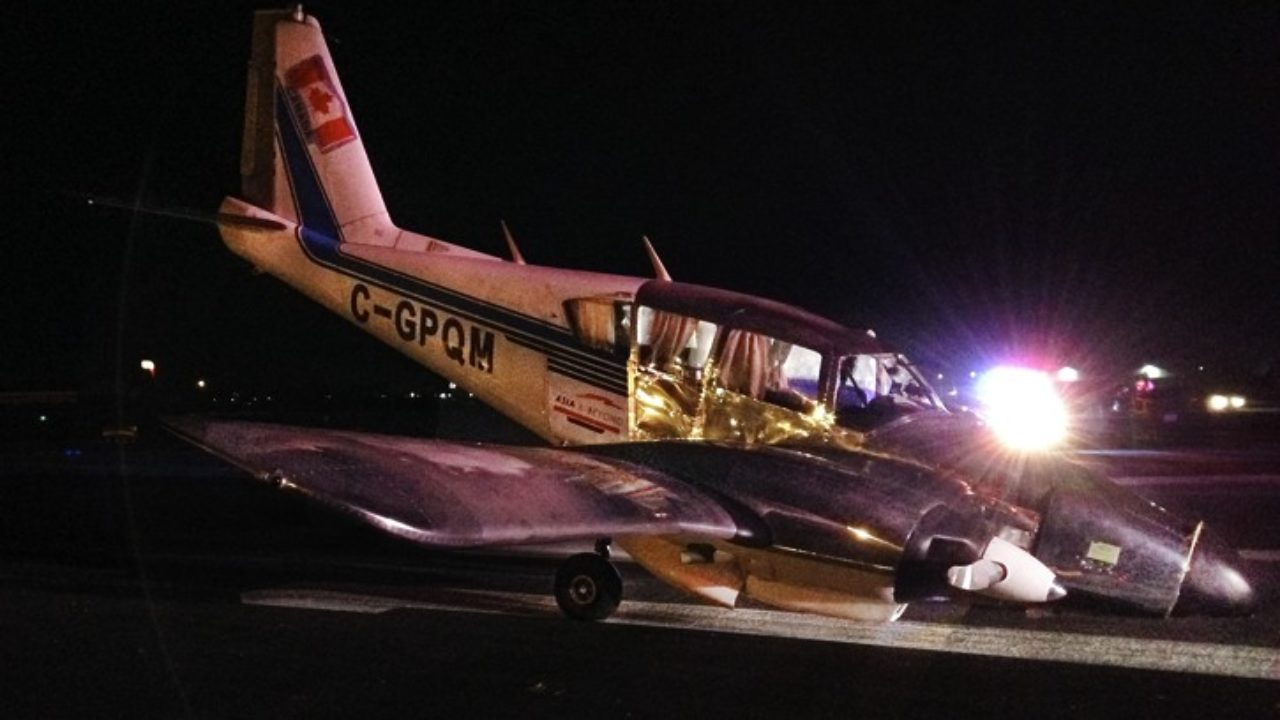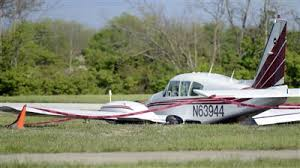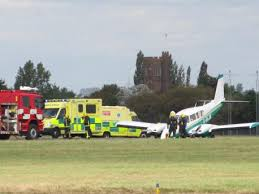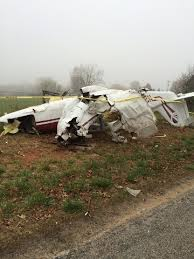Resilience
I was asked a few weeks ago about what change that the pandemic has brought that I would like to keep. “None” was my answer at the time, but as I think more about it, there is a change in me and I hope in some of you that we will all want to keep. That change is an increase in my resilience. In a training I attended (virtually) recently, Dr. Naomi Paget named several definitions of the word “resilience” from several different disciplines. The mechanical engineer defines resilience different than the electronic engineer, and they both differ a lot from the psychologist. The dictionary gives several meanings, and you can google many more as easily as I can so I won’t go into that with you here. I will give my definition of resilience is the ability to bounce back when life smacks us down. COVID-19 has smacked us down.
Let me share a story with you from my past that increased my resilience.
It took place in Bolivia while I was a missionary pilot there. I think the year was 1987. Of the four missionary airplanes based at our little airstrip on the outskirts of Santa Cruz, Bolivia, mine was the only one available when the call came. They called for an emergency medical flight to Concepcion, about an hour out, to pick up someone who needed urgent surgery. The roads were closed because of recent rains, and the weather that day was questionable. Another more experienced pilot, Ron Farnum, was available so Ron and I flew our Piper Aztec to pick up a little girl and her parents.
It was raining all around and over Concepcion, so we had to detour quite a lot. After an instrument approach through the clouds we found the runway in between showers and sort of “splashed-down” instead a making a smooth landing. The passengers arrived at the airport just as the rain stopped and we loaded up, made a routine take-off…then heard the tower say, “Be advised that your nose gear did not retract.” Hmmm… first time that had ever happened! I reacted by lowering the landing gear, saw the normal three green lights that indicated that the landing gear was down and locked, but when I retracted the landing gear again, no “gear up” light showed. A look in the mirror on the engine nacelle confirmed - the nose gear stayed down when it should have retracted.
Hmmm… Ron and I discussed (in our headsets so as not to scare our passengers) what now? Why didn’t the gear retract? Was the gear down and locked? Was it down and dangling? Would it stay down when we landed or was it broken? If it was broken, how badly broken was it? If it was not down and locked when we landed… would the airplane flip over? If the airplane flipped over would we survive? Would it be better to land with the main gear up and destroy the underside of the airplane?
We had a lot of questions and few answers none of which we liked. I suppose you could say that we had a “Crisis of Uncertainty”.
After weighing our options, we decided to share (confess?) with my wife over the radio (who was at home in Santa Cruz) our predicament and ask her to get as many available missionary mechanics as possible to look it over when we made it home.
An hour and 15 minutes later (it takes longer with one landing gear hanging out in the wind) we arrived at the little airstrip on the outskirts of Santa Cruz to a crowd of about 10 people armed with binoculars and fire extinguishers. Some were at the hangars near the end, others were half way down the runway and a couple were at the far end. We flew low and slow over the runway so they could have a look. They said that when we flew by at 70 miles an hour they couldn’t see a lot, but what they saw looked normal to them. We came back around and made the gentlest landing possible, taxied in to the hangar and shut the engines down. Nothing folded, nothing broke, nothing crashed. Our passengers were excited that so many people had come out to greet them…they had no idea about the landing gear crisis and probably still don’t.
I said all that to say this, when I talked with my wife about it later she asked, “Why were you both so calm about it when you told me on the radio? I wondered if it was a joke.” I really had not thought of being scared or excited when it was happening. Looking back, I think Ron and I were calm that day because we were resilient. I see a few reasons for our resilience:
We had prepared as best as we could in the years, days, and hours before the event.
We both were trained and experienced in flying that particular airplane.
Ron and I both had spent as much or more time getting our aviation mechanic licenses (A & P) as we had getting our pilot licenses.
We were both very familiar with the hydraulic system of that airplane and knew that if Ron held the lever down as I landed and we taxied to the hangar it would put a positive hydraulic pressure on the landing gear actuating cylinder.
We had gone to the trouble, expense, and bother of installing radios in the airplane and in our homes so we could communicate.
We had flown together enough to be a team…we trusted each other.
We had a reserve. When I fueled the airplane before the flight I added 60 minutes of fuel in addition to what I knew we would need to get there and back. (An hour fuel reserve for the wife and kids! That was our rule.)
When I loaded the passengers’ baggage into the back of the airplane in Concepcion, I tied it down so it wouldn’t move. We used straps and a cargo net that would keep all of the cargo in the back of the airplane in the event we did have a crash landing instead of a gentle touchdown.
When the passengers sat down in their seats I showed them how to buckle, unbuckle and tighten their seatbelts. Then I checked to make sure they were buckled up just before landing.
We accepted our the brutal facts of our situation and asked for help, prayers, binoculars, presence, fire extinguishers… etc. I wanted the whole 9 yards. I knew this was likely to scare my wife, but I didn’t want it to make her a widow.
We saw it as a challenge. We knew that we had no guarantee that we would survive the next hour, but we accepted the challenge to make the outcome as good as it could possibly be.
Another missionary pilot friend has a rhyme for some of this… Proper prior preparation prevents poor performance. I think Ron and I performed that day with proper performance…and the outcome was good. The little girl had her surgery, an obstructed bowel that could have caused her death. She and her parents returned to Concepcion later on the bus. We didn’t bend the airplane. When I looked at the landing gear it was caked up completely with mud and sand from our wet “splash-down” type of landing on our arrival in Concepcion. A good wash-down with the water hose and we were good to go…well, I might have put it up on the jacks and done a couple of “test retracts” and a good lube job before I flew again. Okay, I confess, I inspected that landing gear better than I ever had before that day.
Our resilience paid dividends that day. The challenge of our “Crisis of Uncertainty” built our resilience a bit stronger. Our wives understood better than ever the importance of their putting up with the static of HF radio noise in their homes in the background during hour after hour of boring and routine flights. Our fellow missionary pilots understood better the importance of “double-teaming” when that was possible on flights that were challenging. Our fellow missionary aviation mechanics understood better their importance as a part of a sometimes very loosely organized “team” of missionary aviation. Ron and I understood better the motto of “fly the airplane first, last, and always.” Even crashes are more survivable when they are controlled crashes.
Yes, 2020 has been a challenge. Yes, we can be more resilient than ever before. We humans are not naturally resilient, but we can train for and build resilience. Resilience needs to be looked at as a positive characteristic to be built and strengthened.
Resilience can improve the quality of our lives by:
Fostering confidence both individually and as a community
Cultivating a culture of healing and restoration
Encouraging positive adjustment and adaptation
Promoting new opportunities
Nurturing growth through learning and skills
Creating cohesion
Teaching us to thrive, not just survive
How can I improve my own resilience? Or that of my family, my church, my team...? Dr. Paget suggests, and I wholeheartedly agree, that we cultivate the following “12 Habits of the Heart.”
12 Habits of the Heart
Know your God and practice your faith.
Scientific, broad ranging studies in various countries have shown that people of faith tend to live healthier, longer and better quality lives. Your faith can help you cope during a crisis.
Have a positive attitude.
A positive attitude helps you cling to possibilities. Again, science shows that positive thinking increases opportunities to succeed.
Know what your purpose and mission are.
Do you have a reason to get up each morning? Before you go to bed every night, write down the 3 most important things to do tomorrow.
Forgive and receive forgiveness.
You forgive others not for them but for you. A forgiving heart mitigates anger, bitterness, and resentment.
Be your best self.
Character defined by high values and legacy influences mental health.
Laugh and enjoy life.
Again scientific studies show that real laughter (not just smiles) reduces the physical effects of stress. Even the anticipation of laughter reduces levels of stress hormones.
Be generous.
It lights up your brain.
Be kind
Because being kind goes a lot further than being right.
Be thankful
A thankful heart overcomes despair. Gratitude is an aftereffect of thankfulness.
Be humble
You can’t be the expert about everything…be realistically humble and enjoy freedom from despair.
Give honor
Acknowledge those who have earned it by their courage and effort.
Live a life of hope and awe.
Hope relieves stress, helps us see the finish line, helps us believe we can keep on hanging on, helps us see a brighter future, helps us adapt and be flexible, and helps us be optimistic. Surveys of suicidal people show hopelessness to be the common denominator.
The Corona Virus is neither a joke nor a hoax. I have spoken with many who have had the illness and they say that they have hurt more than they thought they could stand and longer than they thought it would last. One friend, a rancher in Bolivia, originally from Montana, died from Corona Virus last week. It is neither a joke nor a hoax. It is real. It could affect me. It could affect you. Whether COVID-19 affects your health directly or not, it is already proving to have a psychological/emotional/spiritual footprint many times greater that the physical footprint. Even if we have not dealt with it in our own personal lives, the pandemic has already affected us. It has affected our jobs as some have lost their jobs, others have been asked to work long hours, some have had to step up to take the place of one who has had the virus. We couldn’t go to church or have a family barbeque, our kids couldn’t go to school, and are wondering what next school year will look like. For a while, we couldn’t buy toilet paper, and now it’s “exact change or plastic only.”
I can’t change anything having to do with Corona Virus. It has smacked us down. We can choose to stay down or to use this crisis to build our resilience and bounce back better than ever. I am working on building my resilience by practicing the 12 Habits of the Heart, and I hope that you will too.








